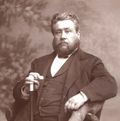And Rehoboam went to Shechem: for to Shechem were all Israel come to make him king.(2 Chronicles 10:1)
And it came to pass, when Jeroboam the son of Nebat, who was in Egypt, whither he fled from the presence of Solomon the king, heard it, that Jeroboam returned out of Egypt.(2 Chronicles 10:2)
And they sent and called him. So Jeroboam and all Israel came and spake to Rehoboam, saying,(2 Chronicles 10:3)
Thy father made our yoke grievous: now therefore ease thou somewhat the grievous servitude of thy father, and his heavy yoke that he put upon us, and we will serve thee.
And he said unto them, Come again unto me after three days. And the people departed.(2 Chronicles 10:5)
And king Rehoboam took counsel with the old men that had stood before Solomon his father while he yet lived, saying, What counsel give ye me to return answer to this people?(2 Chronicles 10:6)
And they spake unto him, saying, If thou be kind to this people, and please them, and speak good words to them, they will be thy servants for ever.(2 Chronicles 10:7)
Other publications related to "2 Chronicles 10:4":
2 Chronicles 10:4 - Cross Reference
For this is the love of God, that we keep his commandments: and his commandments are not grievous. (1 John 5:3)
Take my yoke upon you, and learn of me; for I am meek and lowly in heart: and ye shall find rest unto your souls. (Matthew 11:29)
And Solomon had threescore and ten thousand that bare burdens, and fourscore thousand hewers in the mountains; (1 Kings 5:15)
And it came to pass in process of time, that the king of Egypt died: and the children of Israel sighed by reason of the bondage, and they cried, and their cry came up unto God by reason of the bondage. (Exodus 2:23)
And he said, This will be the manner of the king that shall reign over you: He will take your sons, and appoint them for himself, for his chariots, and to be his horsemen; and some shall run before his chariots. (1 Samuel 8:11)
For they bind heavy burdens and grievous to be borne, and lay them on men's shoulders; but they themselves will not move them with one of their fingers. (Matthew 23:4)
I was wroth with my people, I have polluted mine inheritance, and given them into thine hand: thou didst shew them no mercy; upon the ancient hast thou very heavily laid thy yoke. (Isaiah 47:6)
And the Egyptians made the children of Israel to serve with rigor: (Exodus 1:13)
But of the children of Israel did Solomon make no bondmen: but they were men of war, and his servants, and his princes, and his captains, and rulers of his chariots, and his horsemen. (1 Kings 9:22)
Thy father made our yoke grievous: now therefore make thou the grievous service of thy father, and his heavy yoke which he put upon us, lighter, and we will serve thee. (1 Kings 12:4)
Judah and Israel were many, as the sand which is by the sea in multitude, eating and drinking, and making merry. (1 Kings 4:20)
And Judah and Israel dwelt safely, every man under his vine and under his fig tree, from Dan even to Beersheba, all the days of Solomon. (1 Kings 4:25)

